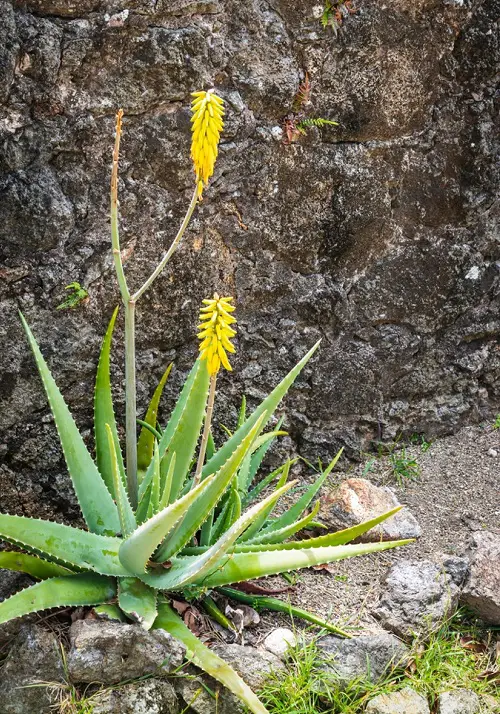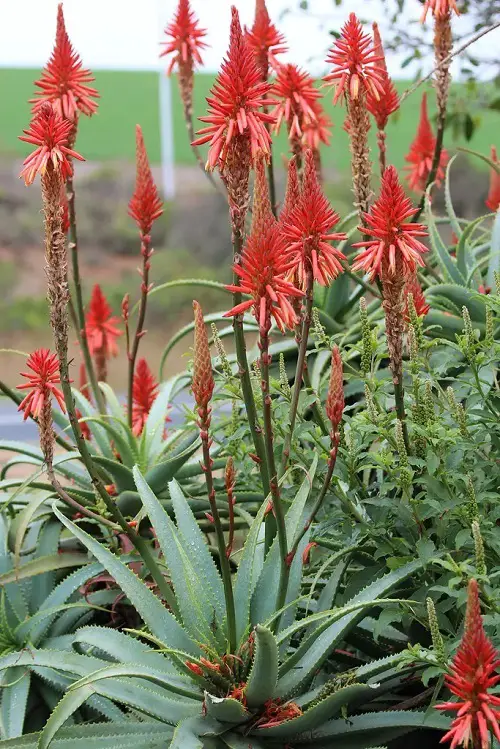Learn everything about How to Get Aloe Vera To Flower and invite the rare blooms of this easy-to-maintain succulent to your garden and home!
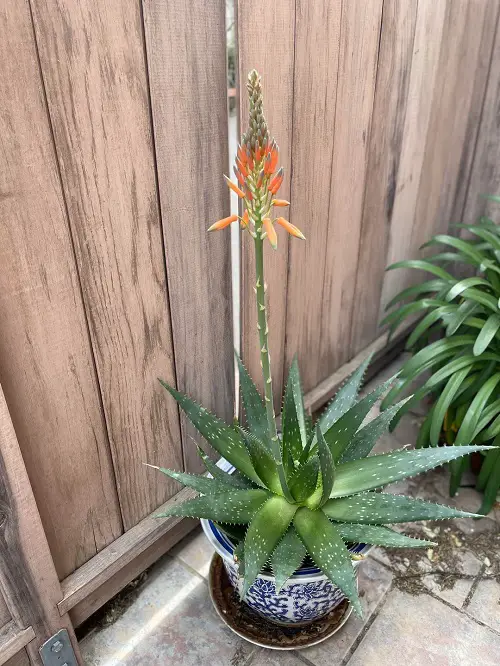
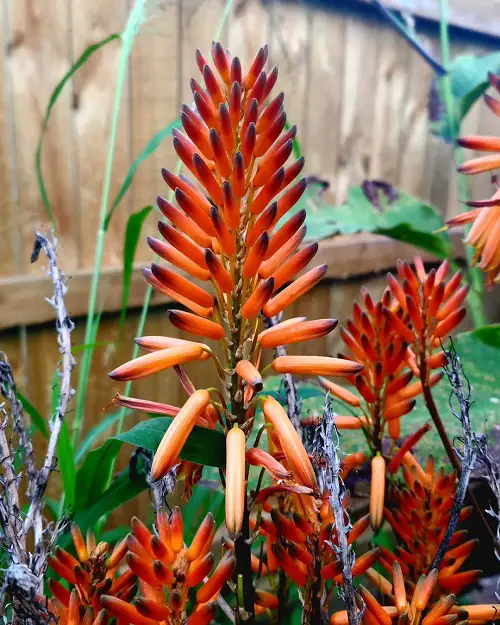
While most people have aloe vera in their plant collections, only a few know that this plant blooms, too! If you want to know how to get aloe vera to flower, then here are the best tips.
Will My Aloe Vera Plant Flower?
The answer is yes! Mature aloe vera plants produce flowers, but this depends on many factors, such as sun exposure and the growing environment.
Typically, an aloe vera does not produce flowers till it gets mature, and that takes at least 4 years. Also, only outdoor-grown aloe vera produces yellow, orange, or red flowers on the end of the stalks.
How Often Do Aloe Vera Plants Flower?
Do not expect your aloe vera plants to flower all year. The succulent blooms once a year during spring after they reach four years old.
How Long Does An Aloe Vera Flower Last?
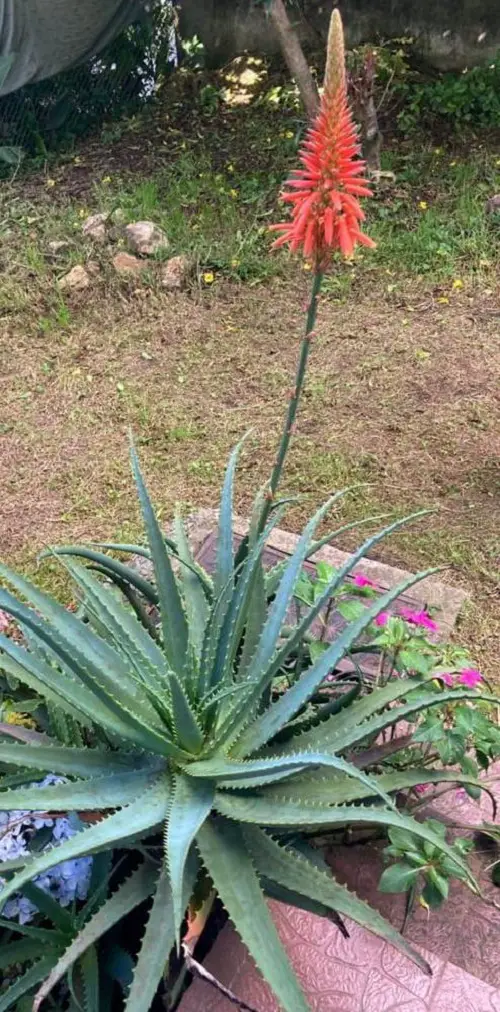
Once the flowers appear, they last for several weeks. However, the exact duration can vary according to growing conditions and the type of aloe vera plant. But the flowers are indeed long-lasting in nature!
Check out Amazing Aloe Vera Benefits Proven In Studies
Does Aloe Vera Die After Blooming?
No. Aloe Vera would not die after flowering and continues to grow like other tropical, semi-flowering plants. The flower stalks die back by turning dry.
What Do the Blooms of An Aloe Vera Look Like?
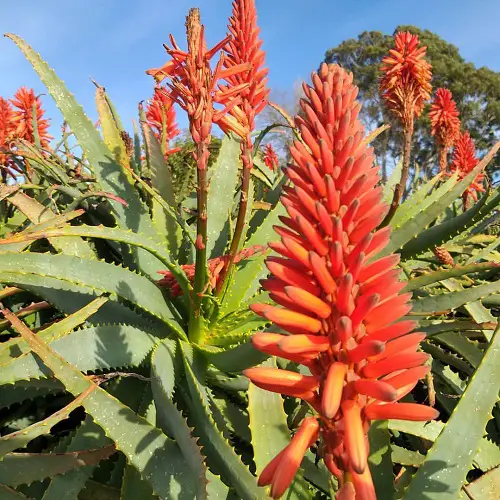
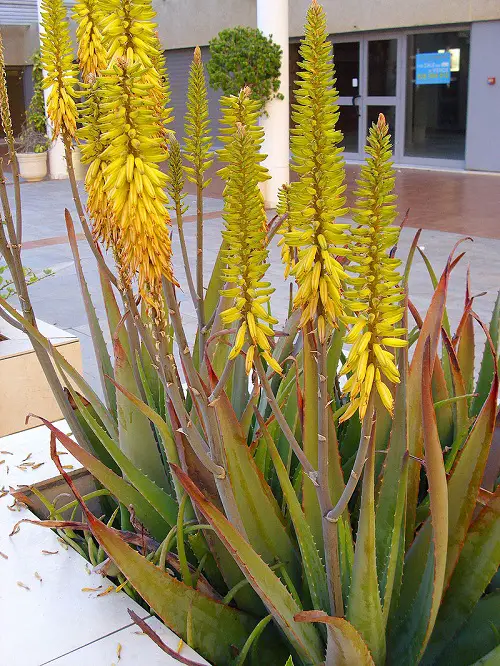
The flowers of this plant have multiple, pipe-shaped individual tubes that grow vertically. The tuber bells grow downward and have an inverted U-shape. The blooms have an orange, red, and yellow hue.
The florets resemble red hot poker plants with tubular orange and yellow blossoms hanging in clusters over a strong flower stem.
Do Aloe Plants Blooms Have a Scent?
No. Aloe vera flowers are fragrance-less. However, they are rich in pollen and nectar, which attracts birds and bees.
Aloe Vera Flower Uses
Its flowers have the quality to fight digestive and immune issues. They are generally added as an ingredient in drinks, recipes, salads, and desserts. The flower extracts are a good source of antioxidants.
How to Get Aloe Vera to Flower?
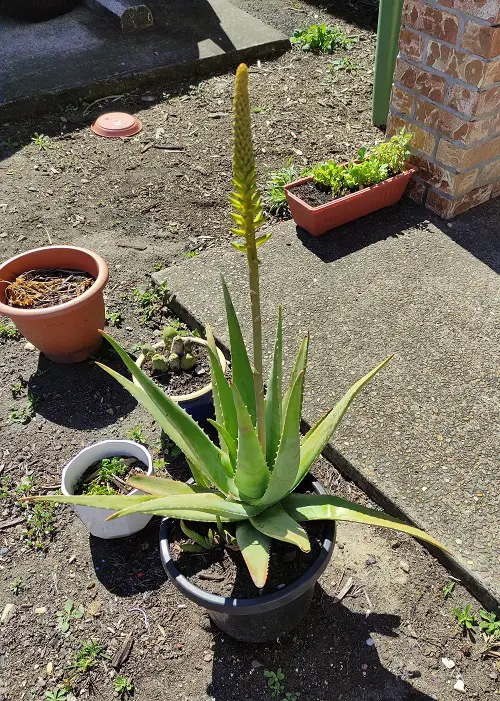
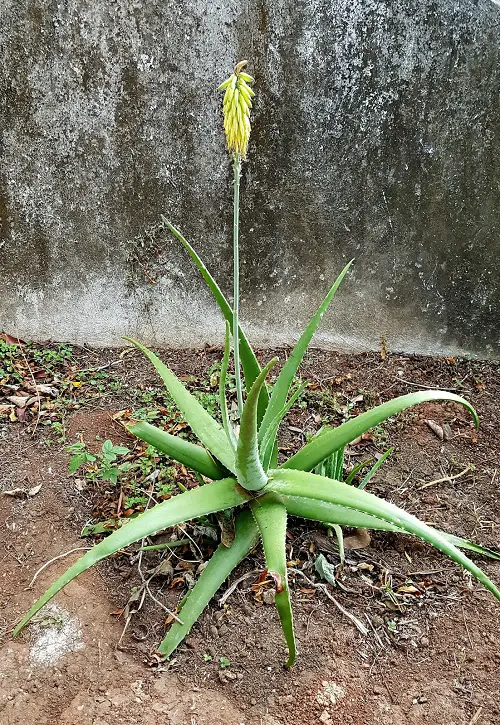
1. Give them an Extra Dose of Light
Like every other flowering plant, it will only flower when exposed to plenty of light. Do not expect the plant to bloom if you are keeping it in the shade. Start to keep your aloe in 5-6 hours of direct sun 2-3 months before spring, the time it blooms.
Check Sunburnt Aloe Vera Plant Symptoms and How to Revive it
2. Buy Mature Plants
Do not expect flowers from a young aloe plant. It blooms after reaching a certain age, 4 years minimum. Wait for the right time, or buy a plant that’s at least 4 years old from a garden center.
3. Take the Plant Outdoors
Many gardeners wish their aloe plants to flower while growing indoors, but unfortunately, this never happens. Natively, aloe vera grows in open areas, exposed to windy and sunny conditions.
However, mimicking the same trick the plant uses to grow flowers as spring approaches can help you see the blooms.
4. Fertilize to Boost the Growth and Flowering
A healthy aloe has more potential to produce bright blooms. Make sure you use a rich and well-draining potting mix. Also, start feeding the plant with a balanced liquid fertilizer, diluted to half of its strength, 3 months before spring.
Check out the Best Soil For Succulents
5. Temperature Variations
Provide cooler nights and slightly warmer days to expose the aloe vera plant to temperature fluctuations. This mimics natural environmental changes and may trigger the plant to initiate flowering.
The best temperature range for aloe vera is 70°F to 85°F (21°C to 29°C) in the daytime and not lower than 60°F at night. In the spring months, move plants indoors in the evening.
6. Keep it a Little Root Bound
Aloe vera likes to be in a slightly root-bound state, and keeping it in the same will allow the plant to re-direct its energy into growing blooms rather than expanding the roots in the pot.
7. Stress Induction
Subjecting the Aloe vera plant to mild stress conditions can sometimes stimulate flowering. You can achieve this by slightly reducing watering frequency or withholding water for a short period.
However, it’s essential to ensure the stress level remains within the plant’s tolerance to avoid damaging its health.


